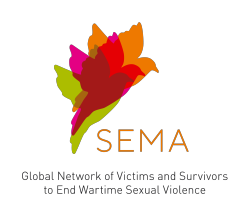International Covenant on Civil and Political Rights (ICCPR)
I. Introduction🔗
The International Covenant on Civil and Political Rights (ICCPR) sets out a binding framework for the protection of civil and political rights. It was adopted by the United Nations General Assembly on 16 December 1966 and entered into force on 23 March 1976.1 The Human Rights Committee (CCPR) monitors States’ implementation of the Covenant.2
I.1 CRSV under the ICCPR🔗
The Committee has condemned sexual violence as ‘a form of extreme gender-based violence’3 that may also amount to torture or cruel, inhuman or degrading treatment or punishment (“ill-treatment”), in contravention of:
- Article 7 (on torture and ill-treatment).4 As the Covenant does not contain an exhaustive definition of the forms of treatment covered by article 7, and the Committee has not provided an exhaustive list of practices contrary to article 7 or established sharp distinctions between the different kinds of punishment or treatment,5 States should determine whether an act amounts to torture or ill-treatment on a case-by-case basis. However, the Committee has clarified that ‘article 7 relates not only to acts that cause physical pain but also to acts that cause mental suffering to the victim’.6 Further, it has specified that conflict-related rape may amount to torture, particularly in the form of gang rapes and rapes committed in detention;7
- Article 17 (on the right to privacy and family life).8 The Committee has found that conflict-related rape committed by State agents constitutes an arbitrary interference with a victim/survivor’s privacy and sexual autonomy.9
The Committee has noted that the provisions of the Covenant apply in situations of armed conflict in a complementary manner with international humanitarian law.10 It has acknowledged that sexual violence is frequently used as a weapon of war, by both armed groups and States’ armed forces,11 and that it particularly affects women.12
II. Legal Framework🔗
- International Covenant on Civil and Political Rights (ICCPR)
- First Optional Protocol to the International Covenant on Civil and Political Rights
- Human Rights Committee (CCPR)
- General Comments
- Concluding Observations
- Views
III. Obligations🔗
Prevention🔗
III.1 States must ensure that no one subject to their jurisdiction suffers CRSV🔗
Under article 7, States must ensure that no one is subjected to torture or ill-treatment. The aim of article 7 is to protect both the dignity and the physical and mental integrity of the individual.13 The prohibition is absolute, and remains in force in a crisis, such as war and public emergencies.14
States have a duty to afford everyone protection against the acts prohibited by article 7, ‘whether inflicted by people acting in their official capacity, outside their official capacity or in a private capacity’.15
‘Subject to their jurisdiction’. Under article 2(1), States undertake to respect and ensure the rights recognised in the Covenant to all individuals within their territory and/or subject to their jurisdiction,16 ‘without distinction of any kind, such as race, colour, sex, language, religion, political or other opinion, national or social origin, property, birth or other status’.17 Violations committed against persons in vulnerable situations are particularly serious, and are more likely to fall within the scope of article 7.18
Reservations to article 2(1) are not acceptable and should be withdrawn.19
III.2 State should adopt legislative and other measures to eliminate CRSV🔗
Under article 2(2), States should adopt laws or other measures to give effect to the rights recognised in the Covenant. In particular, they should adopt legislative and other measures to afford everyone protection against torture and ill-treatment.20 Thus, criminalising sexual violence in all its forms is an important step in eliminating CRSV.21
Further, States should:
- Ensure that the Covenant takes precedence over ‘the provisions of national legislation that are deemed inconsistent with the Covenant’;22
- Adapt the definition of rape and other forms of sexual violence in accordance with international standards;23
- Repeal all provisions that are conducive to sexual violence, such as those that hinder ‘the integrity of women and girls’;24
- Increase women’s participation in public life, in particular their representation at the highest levels of government and in the judicial system.25
To implement the prohibition of torture and ill-treatment, it is not sufficient to criminalise them.26 In armed conflict, States should take further steps to prevent the (re)occurrence of sexual violence,27 and adopt special measures to address the vulnerable situation of women (discrimination against whom ‘is often intertwined with discrimination on other grounds’),28 including the establishment of an effective mechanism to encourage the reporting of cases of violence against women.29
III.3 States should educate their population on CRSV🔗
Under article 2(2), States should adopt laws or other measures to give effect to the rights recognised in the Covenant, including measures to combat entrenched patriarchal attitudes and gender role stereotypes, which are conducive to serious violations of the rights and integrity of women and girls.30 States should facilitate a ‘national dialogue on sexual violence against women to increase the visibility of the issue and the status of victims’, and conduct public awareness-raising campaigns to identify the causes and consequences of violence against women.31
Training. Under article 2(2), States should ‘take appropriate measures to raise awareness of the Covenant among judges, lawyers and prosecutors at all levels, especially in autonomous regions, to ensure that its provisions are taken into account by national courts’.32
Training should include guidance on avoiding the revictimisation of victims/survivors of sexual violence: enquiries into their sexual life and morality constitute arbitrary interference with their privacy and an unlawful attack on their honour and reputation, in contravention of article 17 on the right to privacy and family life.33
States should also provide training on the Covenant specifically designed for members of their security forces deployed internationally, in particular in the context of peace missions.34 They should adopt guidelines for vetting ‘to prevent those accused of violations of the Covenant from holding public office and being promoted’.35
III.4 States should monitor the measures they have adopted to eradicate CRSV and report on them to the CCPR🔗
Under article 40, States should submit reports on the measures they have adopted to give effect to the Covenant within one year of the Covenant’s entry into force and, afterwards, whenever the Committee so requests.
In their reports, States must indicate the factors and difficulties, if any, affecting the Covenant’s implementation, and steps taken to overcome them.36 In particular, States should inform the Committee of the measures they have adopted ‘to protect women from rape, abduction, and other forms of sexual violence’ in armed conflict.37
Justice and Accountability🔗
III.5 States should investigate and prosecute CRSV🔗
Investigations. States should ‘investigate promptly, impartially and thoroughly alleged violations of human rights’,38 such as ‘all cases of sexual violence, including child marriage and female genital mutilation’,39 committed by non-State and State actors.40 States should also provide the complainant with detailed information about the results of the investigation.41
A State’s failure to promptly and effectively investigate allegations of sexual violence constitutes a violation of the prohibition of torture and ill-treatment, and article 2(3), concerning a victim/survivor’s right to a remedy.42
States should revise legislation that requires the consent of the victim/survivor to investigate cases of rape,43 and should provide victims/survivors ‘with detailed information about the results of the investigation’.44
Prosecutions. While the Covenant does not expressly require that a State criminally prosecute another person,45 under articles 2(3) and 7, States should prosecute suspects and punish perpetrators of human rights violations,46 with sanctions that are commensurate with the gravity of the crime.47
States should periodically monitor the number of investigations and convictions for violence against women compared to the number of complaints received so that they may strengthen existing measures aimed at the protection of women.48
III.6 States should provide victims/survivors of CRSV with access to justice🔗
The Committee has expressed concerns about reports in certain countries that CRSV victims/survivors ‘have difficulty in gaining access to legal services and that they are deterred from filing complaints or continuing proceedings against their aggressors by a variety of factors’.49 To address these concerns, States should:
- Address the ‘social stigma, fear of reprisals and inducement to accept amicable settlements’ faced by victims/survivors of sexual violence;50
- Protect victims/survivors of sexual violence from stigmatisation and marginalisation at the family and community levels;51
- Establish policies for the confidential storage of medical records of victims/survivors of sexual violence in hospitals;
- Increase the number of female police officers and prosecutors;
- Guarantee the confidentiality and protection of victims/survivors of sexual violence ‘during the filing of a complaint, the investigation and the proceedings’;52
- Make the system of free legal aid fully operational throughout their territories and available to all vulnerable citizens, ‘including victims of wartime sexual violence’;
- Provide for ‘an effective victims and witnesses protection programme’;53
- Guarantee access for victims/survivors of sexual violence to domestic courts;54
- Abolish legal provisions fostering impunity for sexual violence, including amnesties for serious violations of international human rights law and international humanitarian law, and defences of superior order;55 and
- Remove obstacles that hinder the filing of complaints and effective access to justice and compensation for victims/survivors of sexual violence, including by significantly increasing statutes of limitations commensurate with the gravity of sexual violence.56
Humanitarian Response🔗
III.7 States should provide victims/survivors of CRSV with appropriate care🔗
States should take measures to:
- Build adequate shelters for women and children subjected to gender-based violence, in particular women and children with disabilities;57
- Ensure that victims/survivors receive physical and psychological support, including through the establishment of a reparations fund for victims of sexual violence, to be put into operation as soon as possible;
- Facilitate victims/survivors’ access to legal services.58
Women’s sexual and reproductive health. The Committee has expressed concern at reports on the lack of sexual and reproductive health services for women in certain countries, in particular safe and legal abortion for rural women, women living in poverty, women with disabilities and women from ethnic or religious minorities. States should enhance women’s ‘access to sexual and reproductive health services, in particular safe and legal abortion and affordable contraceptives’.59
States should review their legislation on abortion and adapt it to protect women’s sexual and reproductive health.60 States should guarantee effective access to safe, legal abortion when:
- The life or health of a pregnant woman or girl is endangered;
- Carrying a pregnancy to term would cause the woman or girl substantial pain or suffering, especially ‘when the pregnancy is the result of rape or incest or when it is not viable’.61
States should not criminalise women and girls who have abortions and the doctors who attend to them. Further, States should raise awareness and combat the stigmatisation of women and girls who have abortions.62
In times of conflict, States, should not make access to abortion in cases of rape contingent on a judge’s permission: access to a judicial decision during conflict may be severely restricted, which undermines a State’s duty to protect women’s sexual and reproductive health.63 A State’s failure to guarantee victims/survivors’ right to terminate a pregnancy that resulted from rape causes physical and mental suffering in violation of the prohibition of torture and ill-treatment.64
Reparations65🔗
III.8 States should provide victims/survivors of CRSV with remedies🔗
Under article 2(3)(a), States undertake to provide persons whose rights or freedoms under the Covenant have been violated with an effective remedy, determined by ‘competent judicial, administrative or legislative authorities, or by any other competent authority provided for by the legal system of the State’. States should make full reparation to victims/survivors.66 Effective remedies include:
- Compensation;67
- Restitution;68
- Rehabilitation, encompassing ‘psychological rehabilitation and adequate medical treatment and benefit from social and economic reintegration measures’,69 provided free of charge;70
- Satisfaction,71 encompassing ‘the non-material damage caused by the violations suffered’.72 Measures of satisfaction may include ‘arranging an official apology in a private ceremony’.73
The Committee has found that a State’s failure to provide victims/survivors of rape committed by State agents with remedies constitutes a breach of article 17 on the right to privacy and family life.74
States should adopt a victim-centred approach that guarantees access to immediate means of redress,75 and ensure that they are enforced by the appropriate authorities.76 In doing so, States should take into account the Basic Principles and Guidelines on the Right to a Remedy and Reparation for Victims of Gross Violations of International Human Rights Law and Serious Violations of International Humanitarian Law (General Assembly resolution 60/147).77
Footnotes
-
C Tomuschat, 'International Covenant on Civil and Political Rights: Introductory Notes' (UN Audiovisual Library of International Law, October 2008) <https://legal.un.org/avl/ha/iccpr/iccpr.html> accessed 2 March 2023.
-
Communication No. 2234/2013 M.T. v Uzbekistan, Views Adopted by the CCPR at Its 114th Session (29 June-24 July 2015) (21 October 2015) UN Doc CCPR/C/114/D/2234/2013 para 7.4; Communication No. 1900/2009 Mehali v Algeria, Views Adopted by the CCPR at Its 110th Session (10 to 28 March 2014) (21 March 2014) UN Doc CCPR/C/110/D/1900/2009 para 7.10.
-
Communication No. 2615/2015 Devi Maya Nepal v Nepal, Views Adopted by the CCPR under article 5 (4) of the Optional Protocol (14 June 2022) UN Doc CCPR/C/132/D/2615/2015 para 7.5.
-
CCPR, 'General Comment No. 20: Article 7 (Prohibition of Torture, or Other Cruel, Inhuman or Degrading Treatment or Punishment)' (10 March 1992) para 4.
-
CCPR, 'General Comment No. 20: Article 7 (Prohibition of Torture, or Other Cruel, Inhuman or Degrading Treatment or Punishment)' (10 March 1992) para 5.
-
Communication No. 2245/2013 Purna Maya v Nepal, Views Adopted by the CCPR under Article 5 (4) of the Optional Protocol (23 June 2017) UN Doc CCPR/C/119/D/2245/2013 paras 3.2 and 12.3.
-
Communication No. 2615/2015 Devi Maya Nepal v Nepal, Views Adopted by the CCPR under article 5 (4) of the Optional Protocol (14 June 2022) UN Doc CCPR/C/132/D/2615/2015 para 7.5.
-
Communication No. 2615/2015 Devi Maya Nepal v Nepal, Views Adopted by the CCPR under article 5 (4) of the Optional Protocol (14 June 2022) UN Doc CCPR/C/132/D/2615/2015 para 7.5; Communication No. 2556/2015 Fulmati Nyaya v Nepal, Views Adopted by the Committee under Article 5 (4) of the Optional Protocol (11 June 2019) UN Doc CCPR/C/125/D/2556/2015 para 7.8.
-
CCPR, 'General Comment No. 31: The Nature of the General Legal Obligation Imposed on States Parties to the Covenant' (26 May 2004) UN Doc CCPR/C/21/Rev.1/Add.13 para 11; CCPR, 'Concluding Observations on Israel' (21 August 2003) UN Doc CCPR/CO/78/ISR para 11; CCPR, 'Concluding Observations on Germany' (4 May 2004) UN Doc CCPR/CO/80/DEU para 11.
-
CCPR, 'Concluding Observations on the Democratic Republic of the Congo' (30 November 2017) UN Doc CCPR/C/COD/CO/4 para 19.
-
CCPR, 'General Comment No 28: Article 3 (The Equality of Rights between Men and Women)' (29 March 2000) UN Doc HRI/GEN/1/Rev.9 (Vol. I) para 8; Communication No. 2245/2013 Purna Maya v Nepal, Views Adopted by the CCPR under Article 5 (4) of the Optional Protocol (23 June 2017) UN Doc CCPR/C/119/D/2245/2013 para 12.4.
-
CCPR, 'General Comment No. 20: Article 7 (Prohibition of Torture, or Other Cruel, Inhuman or Degrading Treatment or Punishment)' (10 March 1992) para 2.
-
CCPR, 'General Comment No. 20: Article 7 (Prohibition of Torture, or Other Cruel, Inhuman or Degrading Treatment or Punishment)' (10 March 1992) para 3.
-
CCPR, 'General Comment No. 20: Article 7 (Prohibition of Torture, or Other Cruel, Inhuman or Degrading Treatment or Punishment)' (10 March 1992) para 2.
-
CCPR, 'General Comment No. 31: The Nature of the General Legal Obligation Imposed on States Parties to the Covenant' (26 May 2004) UN Doc CCPR/C/21/Rev.1/Add. 13 para 10.
-
Communication No. 1608/2007 L.M.R v Argentina, Views (28 April 2011) UN Doc CCPR/C/101/D/1608/2007 para 9.2.
-
CCPR, 'General Comment No. 24 on Issues relating to Reservations Made upon Ratification or Accession to the Covenant or the Optional Protocols thereto, or in relation to Declarations under Article 41 of the Covenant' (11 November 1994) UN Doc CCPR/C/21/Rev.1/Add.6 para 9.
-
ICCPR, art 7; CCPR, 'General Comment No. 20: Article 7 (Prohibition of Torture, or Other Cruel, Inhuman or Degrading Treatment or Punishment)' (10 March 1992) para 2.
-
Communication No. 2615/2015 Devi Maya Nepal v Nepal, Views Adopted by the CCPR under article 5 (4) of the Optional Protocol (14 June 2022) UN Doc CCPR/C/132/D/2615/2015 para 9.
-
CCPR, 'Concluding Observations on Indonesia' (21 August 2013) UN Doc CCPR/C/IDN/CO/1 para 5.
-
Communication No. 2615/2015 Devi Maya Nepal v Nepal, Views Adopted by the CCPR under article 5 (4) of the Optional Protocol (14 June 2022) UN Doc CCPR/C/132/D/2615/2015 para 9.
-
CCPR, 'Concluding Observations on the Third Periodic Report of the Central African Republic' (30 April 2020) UN Doc CCPR/C/CAF/CO/3 para 14.
-
CCPR, 'Concluding Observations on the Democratic Republic of the Congo' (30 November 2017) UN Doc CCPR/C/COD/CO/4 para 16.
-
CCPR, 'General Comment No. 20: Article 7 (Prohibition of Torture, or Other Cruel, Inhuman or Degrading Treatment or Punishment)' (10 March 1992) para 8.
-
Communication No. 2234/2013 M.T. v Uzbekistan, Views Adopted by the CCPR at Its 114th Session (29 June-24 July 2015) (21 October 2015) UN Doc CCPR/C/114/D/2234/2013 para 9; Communication No. 1610/2007 L.N.P. v Argentina, Views (16 August 2011) UN Doc CCPR/C/102/D/1610/2007 para 14.
-
CCPR, 'General Comment No 28: Article 3 (The Equality of Rights between Men and Women)' (29 March 2000) UN Doc HRI/GEN/1/Rev.9 (Vol. I) paras 8 and 30; Communication No. 2245/2013 Purna Maya v Nepal, Views Adopted by the CCPR under Article 5 (4) of the Optional Protocol (23 June 2017) UN Doc CCPR/C/119/D/2245/2013 para 12.4.
-
CCPR, 'Concluding Observations on Armenia' (25 November 2021) UN Doc CCPR/C/ARM/CO/3 para 16.
-
CCPR, 'Concluding Observations on the Third Periodic Report of the Central African Republic' (30 April 2020) UN Doc CCPR/C/CAF/CO/3 para 14.
-
Communication No. 2245/2013 Purna Maya v Nepal, Views Adopted by the CCPR under Article 5 (4) of the Optional Protocol (23 June 2017) UN Doc CCPR/C/119/D/2245/2013 para 15.
-
CCPR, 'Concluding Observations on Indonesia' (21 August 2013) UN Doc CCPR/C/IDN/CO/1 para 5.
-
Communication No. 1610/2007 L.N.P. v Argentina, Views (16 August 2011) UN Doc CCPR/C/102/D/1610/2007 para 13.7.
-
CCPR, 'Concluding Observations on Germany' (4 May 2004) UN Doc CCPR/CO/80/DEU para 11.
-
CCPR, 'Concluding Observations on the Second Periodic Report of Nepal' (15 April 2014) UN Doc CCPR/C/NPL/CO/2 para 5.
-
CCPR, 'General Comment No 28: Article 3 (The Equality of Rights between Men and Women)' (29 March 2000) UN Doc HRI/GEN/1/Rev.9 (Vol. I) para 3.
-
CCPR, 'General Comment No 28: Article 3 (The Equality of Rights between Men and Women)' (29 March 2000) UN Doc HRI/GEN/1/Rev.9 (Vol. I) paras 8 and 12.
-
Communication No. 2615/2015 Devi Maya Nepal v Nepal, Views Adopted by the CCPR under article 5 (4) of the Optional Protocol (14 June 2022) UN Doc CCPR/C/132/D/2615/2015 para 7.4.
-
CCPR, 'Concluding Observations on the Third Periodic Report of the Central African Republic' (30 April 2020) UN Doc CCPR/C/CAF/CO/3 para 14.
-
CCPR, 'Concluding Observations on the Second Periodic Report of Ethiopia' (7 December 2022) UN Doc CCPR/C/ETH/CO/2 para 20.
-
Communication No. 2556/2015 Fulmati Nyaya v Nepal, Views Adopted by the Committee under Article 5 (4) of the Optional Protocol (11 June 2019) UN Doc CCPR/C/125/D/2556/2015 para 9.
-
Communication No. 2615/2015 Devi Maya Nepal v Nepal, Views Adopted by the CCPR under article 5 (4) of the Optional Protocol (14 June 2022) UN Doc CCPR/C/132/D/2615/2015 para 7.4.
-
CCPR, 'Concluding Observations on Colombia' (26 May 2004) UN Doc CCPR/CO/80/COL para 14.
-
Communication No. 2615/2015 Devi Maya Nepal v Nepal, Views Adopted by the CCPR under article 5 (4) of the Optional Protocol (14 June 2022) UN Doc CCPR/C/132/D/2615/2015 para 9.
-
Communication No. 2615/2015 Devi Maya Nepal v Nepal, Views Adopted by the CCPR under article 5 (4) of the Optional Protocol (14 June 2022) UN Doc CCPR/C/132/D/2615/2015 para 7.4.
-
Communication No. 2615/2015 Devi Maya Nepal v Nepal, Views Adopted by the CCPR under article 5 (4) of the Optional Protocol (14 June 2022) UN Doc CCPR/C/132/D/2615/2015 para 7.4.
-
Communication No. 2615/2015 Devi Maya Nepal v Nepal, Views Adopted by the CCPR under article 5 (4) of the Optional Protocol (14 June 2022) UN Doc CCPR/C/132/D/2615/2015 para 9.
-
CCPR, 'Concluding Observations on Colombia' (26 May 2004) UN Doc CCPR/CO/80/COL para 14.
-
CCPR, 'Concluding Observations on the Democratic Republic of the Congo' (30 November 2017) UN Doc CCPR/C/COD/CO/4 para 19.
-
CCPR, 'Concluding Observations on the Democratic Republic of the Congo' (30 November 2017) UN Doc CCPR/C/COD/CO/4 para 19.
-
Communication No. 2556/2015 Fulmati Nyaya v Nepal, Views Adopted by the Committee under Article 5 (4) of the Optional Protocol (11 June 2019) UN Doc CCPR/C/125/D/2556/2015 para 7.8.
-
Communication No. 2245/2013 Purna Maya v Nepal, Views Adopted by the CCPR under Article 5 (4) of the Optional Protocol (23 June 2017) UN Doc CCPR/C/119/D/2245/2013 para 15.
-
CCPR, 'Report on Follow-Up to the Concluding Observations of the Human Rights Committee: Evaluation of the Information on Follow-Up to the Concluding Observations on Bosnia and Herzegovina' (8 September 2020) UN Doc CCPR/C/129/2/Add.3 p 1.
-
Communication No. 1610/2007 L.N.P. v Argentina, Views (16 August 2011) UN Doc CCPR/C/102/D/1610/2007 para 14.
-
CCPR, 'Concluding Observations on the Second Periodic Report of Nepal' (15 April 2014) UN Doc CCPR/C/NPL/CO/2 para 5; Communication No. 2245/2013 Purna Maya v Nepal, Views Adopted by the CCPR under Article 5 (4) of the Optional Protocol (23 June 2017) UN Doc CCPR/C/119/D/2245/2013 para 15; CCPR, 'General Comment No. 20: Article 7 (Prohibition of Torture, or Other Cruel, Inhuman or Degrading Treatment or Punishment)' (10 March 1992) para 2.
-
Communication No. 2556/2015 Fulmati Nyaya v Nepal, Views Adopted by the Committee under Article 5 (4) of the Optional Protocol (11 June 2019) UN Doc CCPR/C/125/D/2556/2015 para 9(e); Communication No. 2615/2015 Devi Maya Nepal v Nepal, Views Adopted by the CCPR under article 5 (4) of the Optional Protocol (14 June 2022) UN Doc CCPR/C/132/D/2615/2015 para 9.
-
CCPR, 'Concluding Observations on Sweden' (7 May 2009) UN Doc CCPR/C/SWE/CO/6 para 8.
-
CCPR, 'Concluding Observations on the Democratic Republic of the Congo' (30 November 2017) UN Doc CCPR/C/COD/CO/4 para 20.
-
CCPR, 'Concluding Observations on Armenia' (25 November 2021) UN Doc CCPR/C/ARM/CO/3 para 18.
-
CCPR, 'Concluding Observations on the Democratic Republic of the Congo' (30 November 2017) UN Doc CCPR/C/COD/CO/4 para 22.
-
See also CCPR, 'General Comment No. 36 on Article 6: Right to Life' (3 September 2019) UN Doc CCPR/C/GC/36 para 8.
-
CCPR, 'Concluding Observations on the Democratic Republic of the Congo' (30 November 2017) UN Doc CCPR/C/COD/CO/4 para 22.
-
CCPR, 'Concluding Observations on the Democratic Republic of the Congo' (30 November 2017) UN Doc CCPR/C/COD/CO/4 para 21.
-
Communication No. 1608/2007 L.M.R v Argentina, Views (28 April 2011) UN Doc CCPR/C/101/D/1608/2007 para 9.2.
-
The United Nations (UN)' preferred legal language is that of 'Right to a Remedy and Reparation'. See the UN General Assembly's 'Basic Principles and Guidelines on the Right to a Remedy and Reparation for Victims of Gross Violations of International Human Rights Law and Serious Violations of International Humanitarian Law'.
-
Communication No. 2835/2016 Eugénie Chakupewa et al. v Democratic Republic of the Congo, Views Adopted by the CCPR under article 5 (4) of the Optional Protocol (9 December 2021) UN Doc CCPR/C/131/D/2835/2016 para 8.
-
CCPR, 'General Comment No. 20: Article 7 (Prohibition of Torture, or Other Cruel, Inhuman or Degrading Treatment or Punishment)' (10 March 1992) 15.
-
CCPR, 'Concluding Observations on the Second Periodic Report of Nepal' (15 April 2014) UN Doc CCPR/C/NPL/CO/2 para 5.
-
Communication No. 2835/2016 Eugénie Chakupewa et al. v Democratic Republic of the Congo, Views Adopted by the CCPR under article 5 (4) of the Optional Protocol (9 December 2021) UN Doc CCPR/C/131/D/2835/2016 para 8.
-
Communication No. 2615/2015 Devi Maya Nepal v Nepal, Views Adopted by the CCPR under article 5 (4) of the Optional Protocol (14 June 2022) UN Doc CCPR/C/132/D/2615/2015 para 9.
-
Communication No. 2835/2016 Eugénie Chakupewa et al. v Democratic Republic of the Congo, Views Adopted by the CCPR under article 5 (4) of the Optional Protocol (9 December 2021) UN Doc CCPR/C/131/D/2835/2016 para 8.
-
Communication No. 2835/2016 Eugénie Chakupewa et al. v Democratic Republic of the Congo, Views Adopted by the CCPR under article 5 (4) of the Optional Protocol (9 December 2021) UN Doc CCPR/C/131/D/2835/2016 para 8.
-
Communication No. 2615/2015 Devi Maya Nepal v Nepal, Views Adopted by the CCPR under article 5 (4) of the Optional Protocol (14 June 2022) UN Doc CCPR/C/132/D/2615/2015 para 9.
-
Communication No. 2615/2015 Devi Maya Nepal v Nepal, Views Adopted by the CCPR under article 5 (4) of the Optional Protocol (14 June 2022) UN Doc CCPR/C/132/D/2615/2015 para 7.5.
-
CCPR, 'Concluding Observations on Armenia' (25 November 2021) UN Doc CCPR/C/ARM/CO/3 para 16.
-
CCPR, 'Concluding Observations on the Second Periodic Report of Nepal' (15 April 2014) UN Doc CCPR/C/NPL/CO/2 para 5.

 EN
EN FR
FR ES
ES UK
UK



